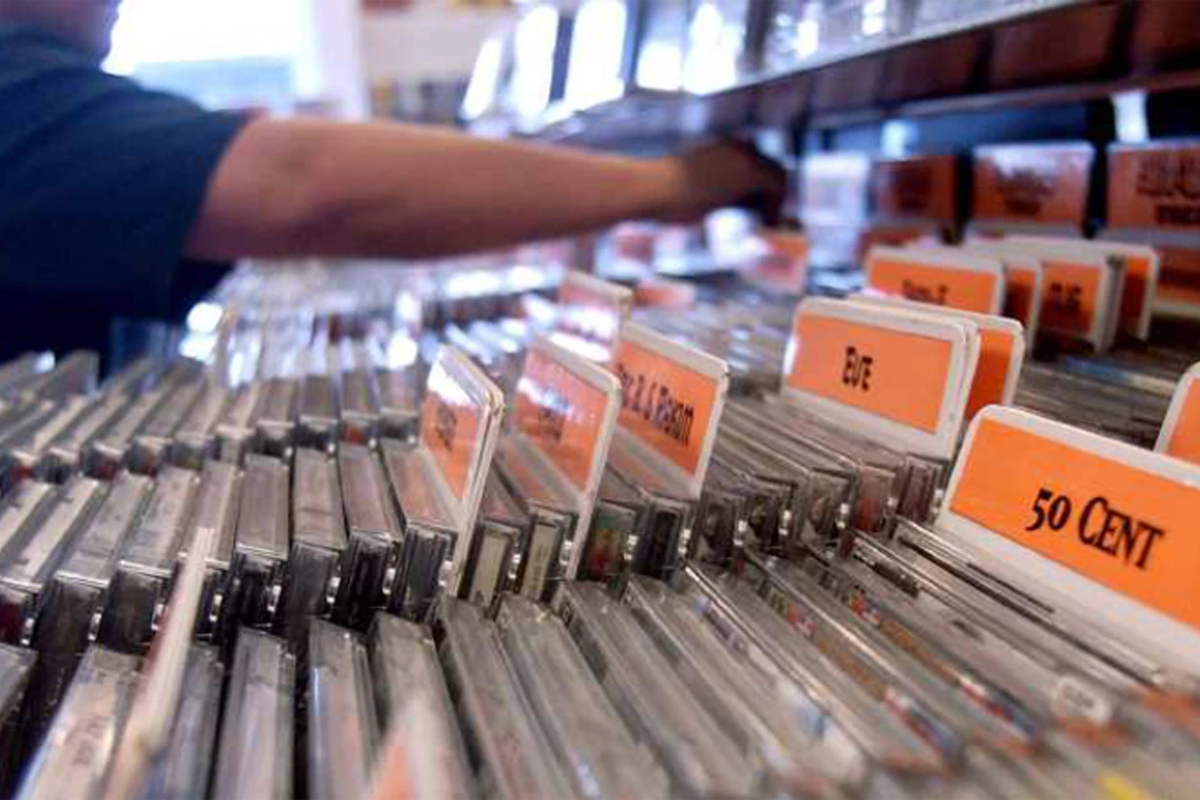Can Jamaican Music Truly Compete With Pop Music In Album Sales?

With the transformation of many industries from analog to digital models, the entertainment industry has had its fair share of shifting. Music platforms specifically have, in many ways, sidelined the digital purchase and download model, in favor of a monthly subscription with unlimited access to all content on said platform.
The subscription model that was met with initial skepticism in many places now dominates both music and film/tv platforms like Apple Music, Spotify, Tidal, Netflix, Hulu, Amazon Prime, and more. This new model has swept over the western markets reflecting the drastic shift. Yet, the tactile nature of the purchase and ownership process involved in the traditional album or DVD purchasing experiences, supply an indispensable stimulation to the human faculty. It will perhaps never cease to be a part of the marketplace no matter how digital it becomes.
Thus the concern as to why is Dancehall music not competing satisfactorily, in terms of album sales with pop and hip hop stars like Megan The Stallion, who has platinum sales, is valid. Yet disappointment is perhaps not valid, all contexts considered.
The Culture
Within the span of 50 years, Jamaica managed to pioneer over half a dozen different genres of music. Jamaican music, primarily, Reggae and Dancehall were born from a response to the need for the people to have a voice or several. These genres became the response for their respective eras, in the midst of postcolonial life on the island, one that is now only 58 years removed from independence.
Many of the popular music in Jamaica becomes popular because of its dedication to a locally approved brand of anarchy and truthfulness. In many ways, the music is a coded space to resist the mannerisms and dicatations of the powers. A vendetta unconsciously inherited from foreparents, just a single generation ago. This resistance often takes time to proceed into conscious reform, something that reggae has arguably achieved in its maturity.
Even reggae still maintains the role that its birth responded to, which is to speak truth, equality, and to maintain the cultural integrity of the afro Jamaican lifestyle. Dancehall and Reggae, in order to maintain the love, respect, and dedication of the community that, in turn, empowers it, must always fulfill its role before it can deviate.
Without the approval and support of their core; Dancehall cannot maintain its reign of currency or authenticity, and Reggae cannot maintain it’s respectability.
The Math
America has been independent for over 200 years, Jamaica a mere 50 plus. American industries have had more time to grow roots, be authentic, evolve and change as they etch closer to perfection, or at least their most ideal self. We may argue, for instance, that Jamaican musicians have done it before, that they have successfully competed, and sold millions of records. But the thing we fail to mention often is that these musicians sold so many records and gained so many fans when records were still selling.
Now we stream records. So what is the success metric really supposed to be for competing? How are we quantifying success? But most importantly, are we seeing the music from the right vantage point when calculating? What I mean by this is; a genre in its infancy like Dancehall, usually takes time to fulfill its role, explore its unconscious drives, and come into itself with more certainty. These things take time, which Dancehall or Reggae has scarcely had.
The Geography
The only way for Jamaican music to properly compete in the American pop/ hip hop music space is for Jamaican artists to access foreign fans, our population simply won’t suffice. There’s the Latin America market, in which we have established a presence thanks to the artists like Shaggy and Sean Paul.
There’s also the European market, which is pretty good.
But the thing we often miss is that these markets have their own versions of our genres, with artists who become competition for Jamaican reggae/dancehall artists. Competition, that is fair and healthy.
The American markets for reggae and dancehall are very niche and occupied also by American practitioners of the music. These odds are important because they form some of our barriers to entry in a lot of these markets, and hence poor performance.
Aside from the occasional tokens, there’s no way for reggae/dancehall artists to infiltrate American music and dominate their artists. They simply would not allow it. We have to understand that their platforms first serve the people/artists and music scenes within the geography of their country. There’s no going around that. Jamaican platforms should first serve Jamaican creatives. Fair is fair. But it is an obstacle we often disregard.
The Token Theory
Most majority-white spaces are being forced to reassess their structures in favor of more “diversity”. This in particular is a huge criticism that Hollywood endures, hence the token is the solitary black person meant to soothe this criticism.
Often, this token may be an exotic token, which calls for a place/ culture or music as sexy as Jamaica’s. These exotic tokens create an opening for hardworking artists like Shaggy and Sean Paul to sit at the table and have their work be fully visible in that market.
The American music industry is built around itself and thus, this fantasy we have where a vanguard of Jamaican artists are standing tall with international superstars, will perhaps never manifest in full. We will always have access through tokens, and we may even be able to create our own narrative that’s powerful enough to arrest their systems for short periods and gain attention. It’s unlikely that this relationship will change unless Jamaican music grows fully and becomes a force on its own.
Conclusively, Jamaican music needs more time to naturally unfold, evolve, multiply, and grow before it can truly compete. Otherwise, the best Jamaican music can do for now is to collaborate. It’s just not in a place to compete.
